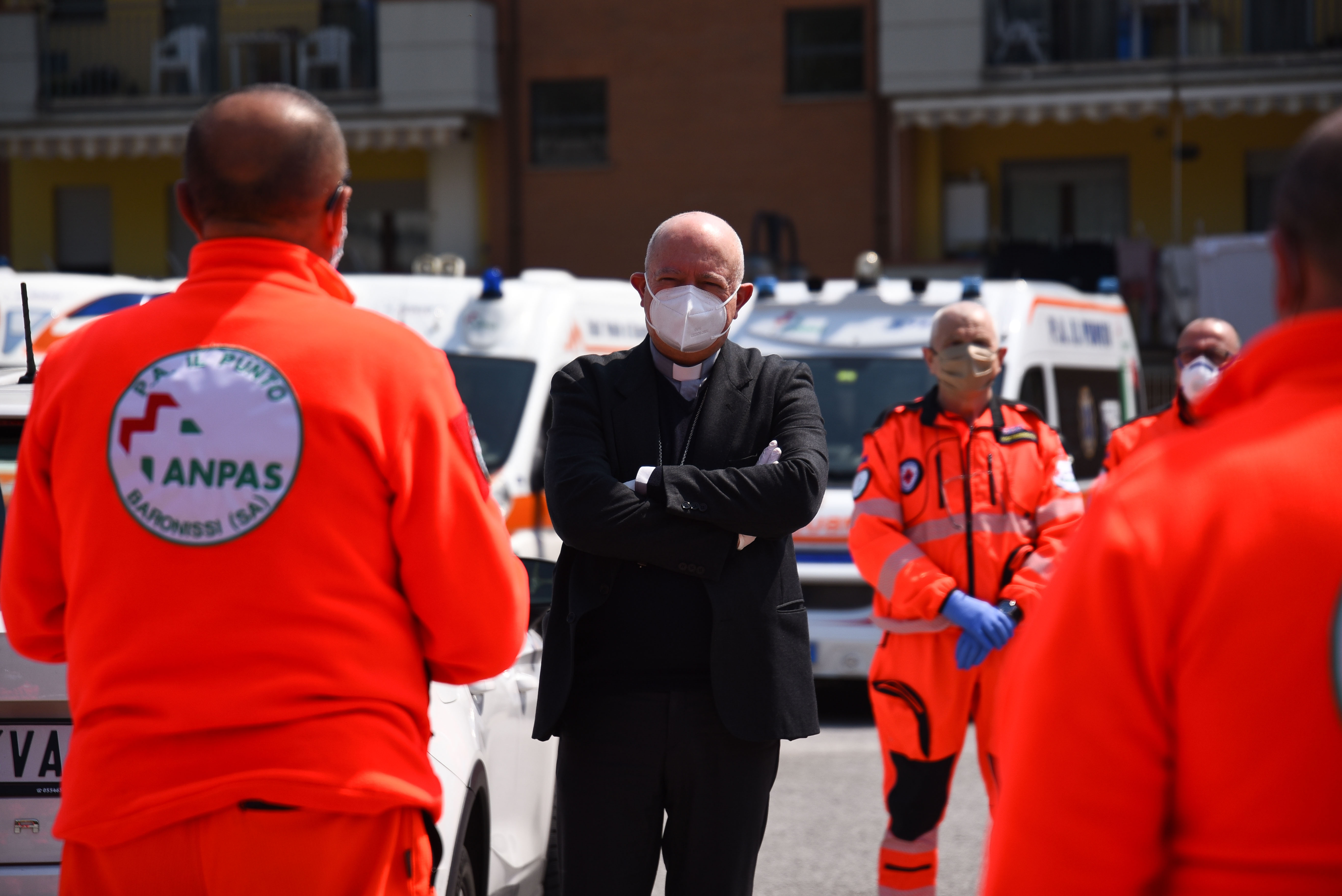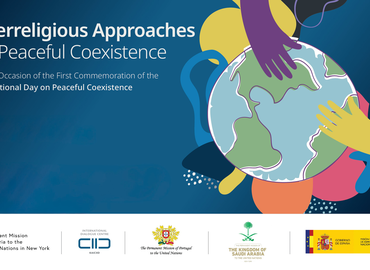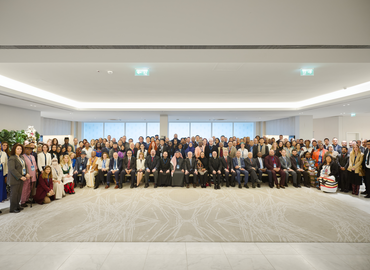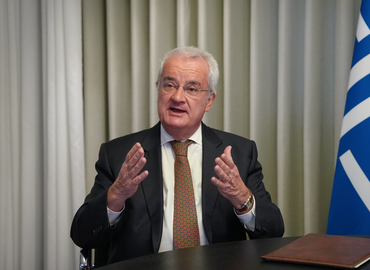Five Things We’ve Learned After a Year of Pandemic

It’s hard to determine the exact moment the pandemic began – in mid-March after the official designation from the World Health Organization, or in the weeks before as basic necessities disappeared from grocery store shelves. For many, the pandemic began during the lockdown period, in those first days of isolation from family members and friends.
As a handful of infections turned into staggering statistics, religious leaders found themselves on the frontlines of an unprecedented crisis. They became medical responders, humanitarian aid providers, mental health counsellors, worship leaders and friends. They helped many of us process the immense sense of loss – of loved ones gone and livelihoods destroyed, of cancelled baptisms, weddings, and memorial services.
Over the past twelve months we shared many stories of faith shining a light in the darkness, as we interviewed hundreds of KAICIID’s stakeholders in countries across the globe.
After one year of lockdowns, we look back at how religion brought us together in the moments we were physically apart, and share 5 lessons we’ve learned during twelve difficult months, 5 lessons which can forge a more united future.
1. Community manifests in new spaces
While governments around the world banned public gatherings and restricted travel to curb the virus, religious leaders and dialogue practitioners turned to creative methods to keep a sense of community.
In Austria, Father Andreas Kaiser of Ober St. Veit Parish taped photos of his parishioners to church pews to show them they were in his thoughts and prayers. He also wrote letters and made phone calls to older parishioners who struggled to use social media. “The idea is to maintain that sense of belonging and affiliation” he said.
In Argentina, Rabbi Marcelo Bater joined the Faith Phone Chain (Cadena Telefónica), a multireligious initiative which connected isolated or anxious individuals with a leader from their respective faith traditions. “I now use the phone 24 hours a day because people need to be in contact,” Bater said. “If you don't have any family, you are completely alone.”
For younger people, digital tools provided much needed solutions. As youth around the world struggled to process loss and fear, Sohini Jana and Jon Rasmussen launched an online mental health support group, offering professional counselling and guidance.
In Saudi Arabia, young women found empowerment through weekly digital dialogues and youth leaders from a peacebuilding project in Nigeria discovered online meetings and WhatsApp groups allowed them to connect individuals who would not normally meet.
2. Observance finds its way
As COVID-19 emptied places of worship, our multireligious Board reminded people of faith that personal prayer and reflection offered the same access to the Divine as physical gatherings. They also called on religious communities across the world to exercise wisdom and judgement in their communal observances.
Creativity appeared in all aspects of worship. Faith leaders livestreamed weekly services, offered drive through Communion, and set up online reservation systems with QR code confirmation for prayer times at local mosques.
In Brazil, Rabbi Guershon Kwasniewski, led his synagogue’s first virtual Seder dinner in honour of Passover, while in Egypt, Heba Saleh enjoyed online iftar meals with friends during Ramadan.
Across the globe, Buddhists participated in digital meditation sessions during Vesak and prepared traditional holiday meals with the help of online cooking classes.
In the United Kingdom, Rabbi Alex Goldberg’s multireligious chaplaincy team at the University of Surrey broadcast 18 shows a week through the campus’ TV studio, reaching 10,000 students. The series included special programming for Passover, Easter, Vaisakhi, Vesak Day, Ramadan and non-religious humanist observances.
In India, as the death toll rose and funeral services were cancelled, Swami Athmadas Yami launched the Dignity Funerals Project to ensure that faith leaders conducted safe burial practices and community members received proper religious rites.
3. Adversity inflames division
As the pandemic progressed, hate speech against religious and ethnic communities ignited around the world, encouraging violence against minorities and refugees. Once again, religious communities responded to these alarming trends.
In India, Swati Chakraborty launched the WebPlatform4Dialogue to counter hate speech against Muslims, and in Nigeria, Father Stephen Ojapah joined a social media campaign to curb the spread of misinformation targeted at the country’s religious and ethnic groups.
In the Arab Region, graduates of KAICIID’s Social Media as a Space for Dialogue programme launched campaigns to combat online bullying, provide fact checking services, and advocate peace and inclusion.
As anti-Semitism and Islamophobia rose at alarming rates, prominent members of Europe’s Muslim and Jewish communities gathered in solidarity at a virtual commemoration on International Holocaust Remembrance Day. “We cannot stop, or rest, until we can ensure that no human being is forced to experience fear, loss or the denial of rights because of their identity or religious convictions,” said KAICIID Secretary General Faisal bin Muaammar.
4. Moral authority counters distrust
Amid misinformation and growing distrust, communities looked to faith leaders to provide credible sources of information. Once again, religious leaders proved to be policymakers’ key partners when responding to a major challenge.
In Kurdistan, Iraq, Barzan Baran Rashid brought together the Ministry of Endowment and Religious Affairs and the Ministry of Health in Kurdistan, to train religious leaders to educate their followers on recommended hygiene guidelines. According to Rashid, collaboration between the two ministries was crucial in tackling COVID-19 in a region where more than a million people gather in most Kurdistan mosques for Friday prayers.
In Nepal, Rajendra Senchurey educated local religious leaders on the science behind social distancing, while in Kenya, Mercy Wambui Muigai worked with religious leaders to stop stigmatisation.
In Myanmar, Swe Mar Oo raised awareness in disadvantaged urban areas where there was a lack of community coordination with local healthcare. She also helped combat discrimination against foreign workers returning from lockdowns abroad. “Community awareness raising programmes are essential,” she said. “Ours was led by interfaith leaders working with local youth volunteers and with local general administration groups sharing accurate health care information.”
In Ghana, Mohammed Kassim trained religious leaders to use Facebook Live to broadcast health guidelines. His team also purchased airtime for two religious leaders so they could speak publicly on COVID-19 prevention.
Perhaps most importantly, religious leaders calmed fears over COVID-19 vaccines, affirming that they meet religious dietary and moral guidelines and are safe for public use.
5. Humanitarian aid is deployed
As the virus levelled economies and exacerbated the divide between rich and poor, faith communities also became the providers of humanitarian aid.
In the United Kingdom, Sneha Roy and Johnson Amamnsunu supported Christian, Hindu, Muslim and Sikh leaders with the distribution of welfare packages containing essential foodstuffs, toiletries and medicines.
In Myanmar, Paungsie Metta Initiatives trained a local pool of volunteers on emergency response and provided aid at quarantine centres. Additionally, they worked with alumni of their interreligious dialogue programme to source protective materials for minority communities.
Seeing the mental burden placed on frontline healthcare workers around the world, Rabbi Naomi Kalish built a multifaith library of pastoral care resources for chaplains, chaplaincy students, healthcare workers, and the general public.
In Lebanon, Mohamed Al Jundy and the Akkar Emergency Unit sanitised houses of worship and led online crowdfunding drives for government hospitals. They also distributed more than 74,900 food baskets to 37,452 needy families.
Building back, building better
In each of these endeavours, the world was asked to reinvent itself and change its priorities to protect the vulnerable. “In a world increasingly inclined towards self-interest, we can see the rebirth of some of the noblest human instincts as reflected in numerous cultures and religions,” bin Muaammar said in a statement at the beginning of the pandemic.
These instincts will help us build back and build better, across our economies, our health care systems, and our societies. As we emerge from the pandemic, we must rely on our resilience, our courage, our innovation, our shared values, and above all our faith, to lead us forward into the future.

As discrimination, hate speech and identity-based violence…

- KAICIID marks 10 years of global peacebuilding, uniting over 130 leaders in…

